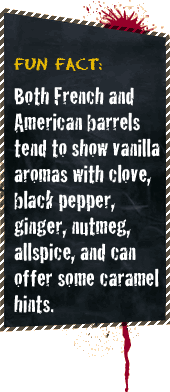Lesson Two: Recipes
Chapter Seven: Gin Up, aka The Martini
Supporting Cast:
Negroni
Martini
The dry gin Martini is not a cocktail, properly speaking; not anymore. Like a God-Emperor of Antiquity, one day it simply ceased being mortal and slipped into a state of immanence, of being present in every thing and place and time. When confined to its glass, it is still a totemic object, a fetish—a fertility statue, propitiatory offering, and funerary icon all wrapped up in one. But this isn’t a book about comparative religion, so I’ll leave off analyzing the divinity’s nature and confine my comments to the ritual procedures for conjuring it up.
Few people, these days, have had a truly first-rate gin Martini. Unfortunately, the priesthood in charge of administering its cult has, by and large, lost its way, and to most the wisdom of the ancients is a sealed book. However, those few who can still read the ancient language adhere to four commandments.
One. Thou shalt not suffer thy Martini to be warm. For the Nature of the Martini lieth in Coldness and unto absolute Coldness must it be stirred. Neither shalt thou shake thy Martini, for by Stirring is the Coldness increased over that produced by Shaking, and that is Good.
Two. If Vermouth maketh One Part of the Six Parts of thy Martini, that is Good. If Vermouth be One Part of Eight Parts, that is Good too, although Not Quite So Much. To pursue a Martini whose Dryness is increased over this is to whore after False Idols and it is an Abomination.
Three. The Gin in thy Martini, its Proof shall be ninety-four. If its Proof be less than ninety-four, thy Martini will be watery and it will be weak and it will be an Abomination.
Four. Thou shalt not pollute thy Martini with the Brine of the Olive. Neither shalt thou stuff thy Olives with Filth and Nastiness the like of which are Blue Cheese and Anchovies and Little Slivers of Garlic, for these are forbidden unto thee. If thou wouldst walk in the narrowest Path of Righteousness, thou shalt twist the Peel of the Lemon over the Martini and there shall be no Olive and neither shall there be an Onion.
So sin if you must sin (I’m partial to an olive or an onion on occasion), but consider yourself warned.
2 1/2 ounces imported 94-proof gin
1/2 ounce Noilly Prat white vermouth
To finish: lemon peel
Stir well and strain into a chilled cocktail glass; twist lemon peel over the top.
Substitutions: Vodka, of course, for the gin—in which case you’ll have to use a lot less vermouth (say, 1 teaspoon) and be willing to risk eternal damnation. Nothing else of any kind.
Negroni
One of the indispensable cocktails. Bittersweet, wildly botanical, and just the thing to prepare the system for an evening devoted to bucatini all’ Amatriciana and bistecca alla Fiorentina, coniglio in tegame and farsumagru and risi e bisi—and don’t forget the sardoni in saòr and the straccetti di manzo alla menta San Gregorio. Is it dinnertime yet?
1 1/2 ounces gin
1 ounce Campari
1 ounce red Italian vermouth
To finish: orange peel
Stir and strain into a chilled cocktail glass; twist orange peel over the top. Note: some prefer this on the rocks.
Negroni
Ryan Demonstrates How To Make a Negroni.
Negroni
In mixing glass add;
1 oz London Dry Gin
1 oz Sweet Vermouth
1 oz Campari
Add ice and gently stir for about 30 seconds
Strain into martini glass
Garnish with flamed orange zest
Martini (Dry)
Ryan Demonstrates How To Make a Dry Martini.
Martini Dry
Chill coupe glass and set aside
Coat the inside of the mixing glass with a little bit of dry vermouth, then pour out any remnants
Add 3 oz of London Dry Gin
Add ice and stir
Strain into coupe glass
Garnish with single olive
Martini (Old)
Ryan Demonstrates How To Make an Original Martini.
Martini Old
In mixing glass add;
2oz dry gin
1oz dry vermouth
2-3 dashes of Regan’s or other Orange Bitters
Add ice and stir
Strain into martini glass
Garnish with lemon zest
Reproduced from “Killer Cocktails” by David Wondrich.


